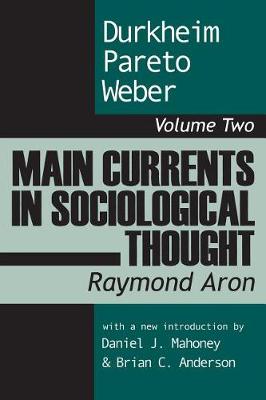Nature of Human Society S.
1 total work
In this second volume of Main Currents of Sociological Thought, Raymond Aron continues the analysis, begun in the first volume, of the "great doctrines of historical sociol-ogy." Aron explores the work of three figures who profoundly shaped sociology as it entered the twentieth century: Emile Durkheim, the great French theorist of consensus, who continued Auguste Comte's quest for a science of society and a scientific validation of morality; Vilfredo Pareto, the Italian "neo-Machiavellian" who mocked traditional mo-rality and humanitarian pretensions and emphasized the oligarchic or elitist character of all societies; and the German sociologist Max Weber, who reflected continuously on the relationship between science and action, filled with deep foreboding about the pros-pects for human freedom in an age marked by bureaucratization and rationalization.
Aron presents rich portraits of these three thinkers, drawing from them what remains of enduring worth, even as he distances himself from Durkheim's project for a science of society, Pareto's exaggerated critique of humanitarianism, and Weber's tragic pessimism. Aron's book is essential for clarifying his profound indebtedness to and crucial divergences from the thought of Max Weber, the sociologist par excellence, in Aron's view.
Together with volume 1, which treats the work of Montesquieu, Comte, Marx, and Tocqueville, it forms the definitive survey of the great social thinkers to date. Yet, as Daniel J. Mahoney and Brian C. Anderson explain in their introduction, Main Currents is more than a survey; it is above all a challenge to contemporary social science to retain the ambition of an older, philosophically informed sociology to present an interpretation of modern society and to reflect on the meaning of universal history.
